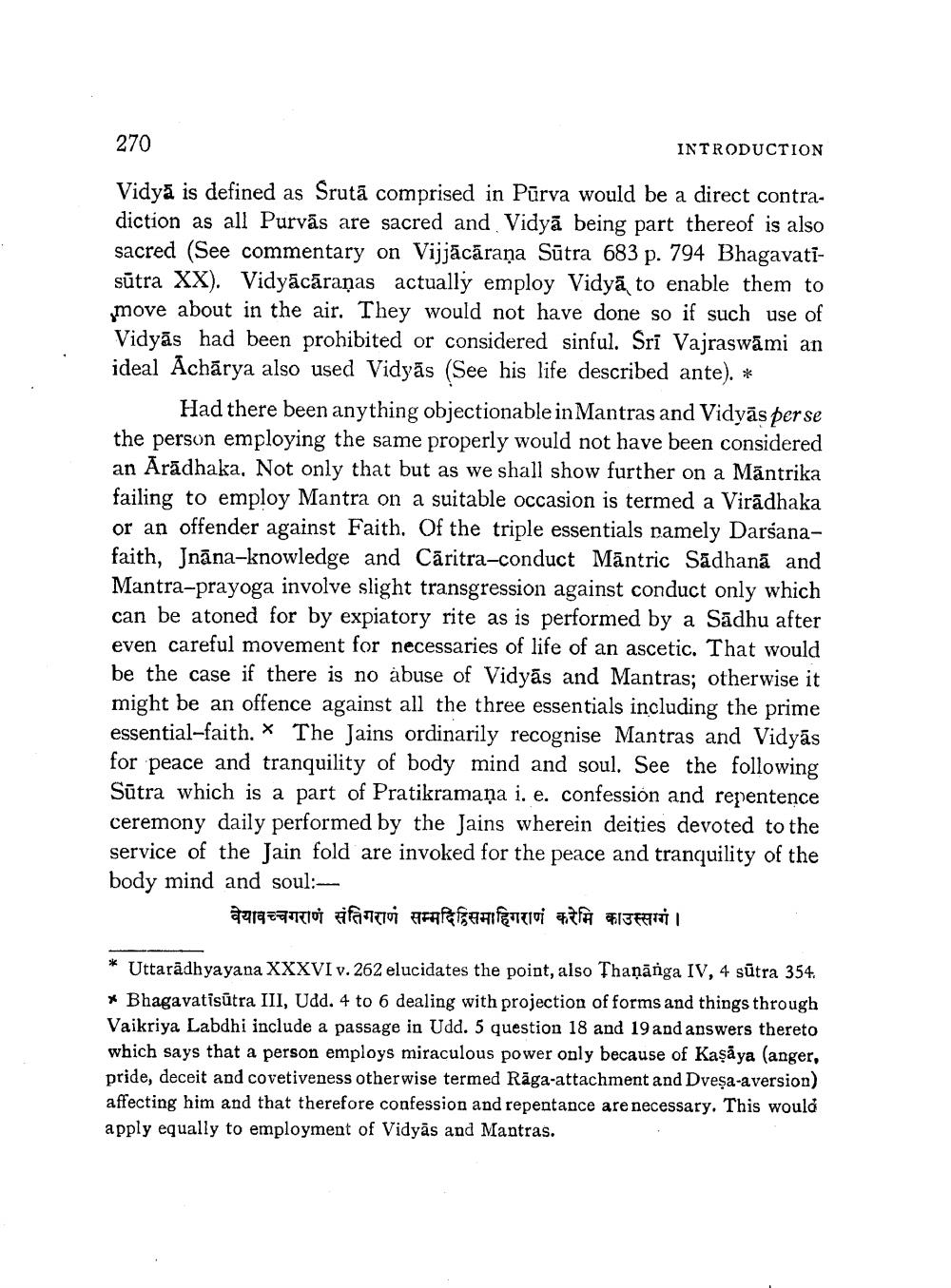________________
270
INTRODUCTION
Vidyā is defined as Srutā comprised in Pūrva would be a direct contradiction as all Purvās are sacred and Vidyā being part thereof is also sacred (See commentary on Vijjācāraṇa Sūtra 683 p. 794 Bhagavatisūtra XX). Vidyācāraņas actually employ Vidyā to enable them to move about in the air. They would not have done so if such use of Vidyās had been prohibited or considered sinful. Sri Vajraswāmi an ideal Achārya also used Vidyās (See his life described ante). *
Had there been anything objectionable in Mantras and Vidyās per se the person employing the same properly would not have been considered an Arādhaka, Not only that but as we shall show further on a Mäntrika failing to employ Mantra on a suitable occasion is termed a Virādhaka or an offender against Faith. Of the triple essentials namely Darsanafaith, Jnāna-knowledge and Cāritra-conduct Māntric Sadhanā and Mantra-prayoga involve slight transgression against conduct only which can be atoned for by expiatory rite as is performed by a Sādhu after even careful movement for necessaries of life of an ascetic. That would be the case if there is no abuse of Vidyās and Mantras; otherwise it might be an offence against all the three essentials including the prime essential-faith. The Jains ordinarily recognise Mantras and Vidyās for peace and tranquility of body mind and soul. See the following Sūtra which is a part of Pratikramaņa i. e. confession and repentence ceremony daily performed by the Jains wherein deities devoted to the service of the Jain fold are invoked for the peace and tranquility of the body mind and soul:
वेयावच्चगराणं संतिगराणं सम्मदिद्विसमाहिगराणं करेमि काउस्सग्गं ।
* Uttarādhyayana XXXVI v. 262 elucidates the point, also Thaņānga IV, 4 sūtra 354. * Bhagavatisūtra III, Udd. 4 to 6 dealing with projection of forms and things through Vaikriya Labdhi include a passage in Udd. 5 question 18 and 19 and answers thereto which says that a person employs miraculous power only because of Kaşaya (anger, pride, deceit and covetiveness otherwise termed Räga-attachment and Dveşa-aversion) affecting him and that therefore confession and repentance are necessary. This would apply equally to employment of Vidyās and Mantras.




